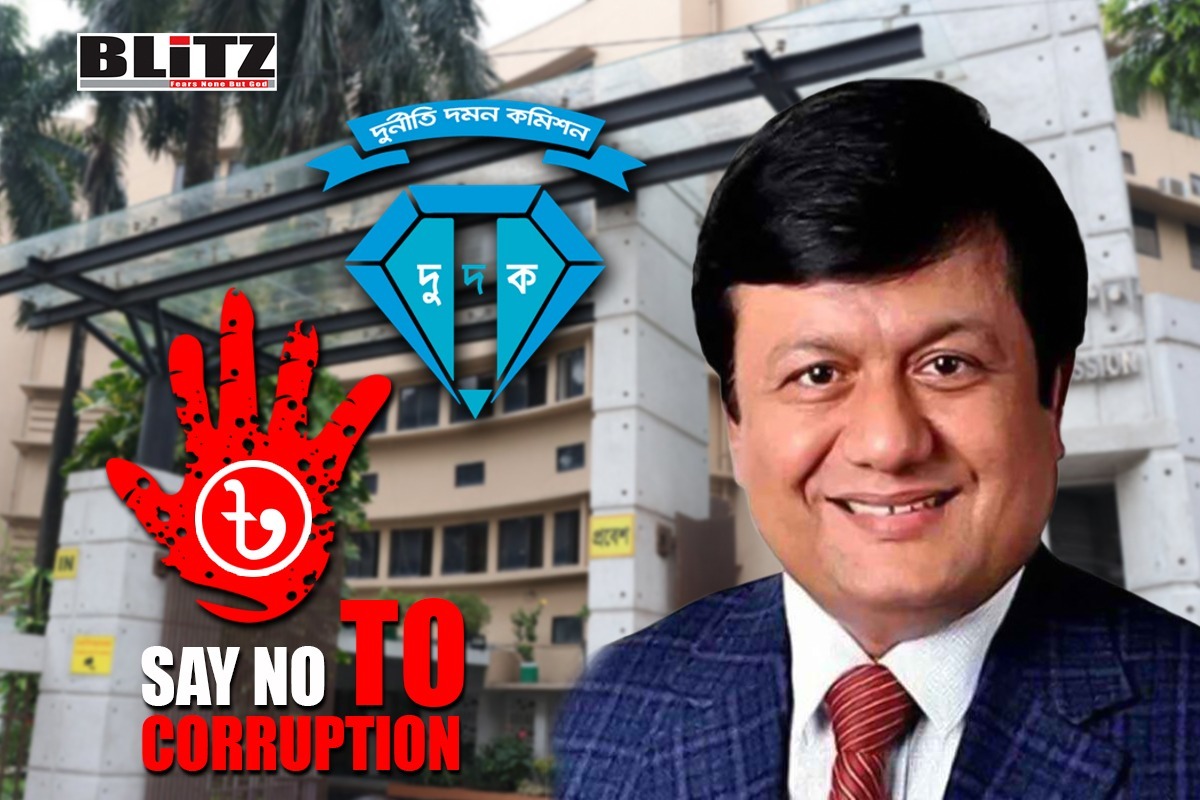Motiur Rahman’s transfer amidst massive corruption scandal
- Update Time : Monday, June 24, 2024

In an unexpected turn of events, Motiur Rahman, the former President of the National Board of Revenue’s (NBR) Customs, Excise, and VAT Appellate Tribunal, has been transferred to the Internal Resources Division (IRD) of the Finance Ministry. This transfer follows a series of allegations and controversies surrounding his amassed wealth, highlighted by his son Mushfequr Rahman Ifat’s extravagant social media posts.
The controversy erupted when Ifat posted a photo of a sacrificial goat on social media, claiming it cost BDT 1.2 million. This revelation sparked outrage and curiosity among the public and media, questioning the legitimacy of such a purchase given Motiur Rahman’s official monthly salary of Tk 78,000. Further scrutiny unveiled a lavish lifestyle that seemed disproportionate to his earnings as a Grade-1 government official.
Following the goat post, additional images surfaced showing Ifat with luxury cars and properties, leading to further questions about the source of their wealth. These included pictures of flats and resorts owned by Motiur in Dhaka, Gazipur, and Narsingdhi. The public and media frenzy over these images brought Motiur Rahman’s financial integrity under intense scrutiny.
In response to the allegations, Motiur Rahman publicly denied that Ifat was his son, claiming to be the victim of a conspiracy. He insisted that his actual son, Toufiqur Rahman, had graduated in economics from a university in the USA, and his daughter, who recently bought a house in Canada, is a makeup artist. He emphasized that his wife, Laila Kaniz Lucky, who is the chairman of Raipura upazila in Narsingdi district, was the target of political machinations ahead of the postponed elections.
The Anti-Corruption Commission (ACC) has launched its fifth investigation into allegations against Motiur Rahman, focusing on the amassing of illegal assets and money laundering. Previous investigations were conducted in 2004, 2008, 2013, and 2021 but did not result in any effective action. The current probe, initiated on June 4, is led by a three-member team headed by a deputy director, reflecting the seriousness of the allegations.
According to ACC sources, Motiur and his family own a seven-story house in Bashundhara, shares in a multi-story building, a shoe factory on 300 bighas of land in Bhaluka, Mymensingh, a resort in Narsingdi, and a shooting spot in Pubail. Additionally, the ACC has information about assets in the names of his wife and other family members, both known and unknown. The extent of these assets has fueled further speculation and concern over the source of Motiur Rahman’s wealth.
Despite Motiur Rahman’s denials, several officials and sources, including lawmaker Nizam Uddin Hazari, asserted that Ifat is indeed Motiur’s son from his second marriage to Shammi Akther Shibly. This marriage and its associated family dynamics add layers to the controversy, with reports of significant investments and property acquisitions in Feni and other locations.
Motiur’s luxurious duplex house in Feni, built at his in-laws’ place, is a testament to the wealth that has come under scrutiny. His second wife, Shammi Akther Shibly, and their son Ifat have been linked to numerous properties, supported by accounts from relatives and local officials. This lifestyle, juxtaposed against Motiur’s official earnings, raises significant concerns about the sources of his wealth.
In addition to Feni, local discussions also highlight the substantial assets of Motiur’s first wife, Laila Kaniz Laki, in various locations, including Raipur in Narsingdi and Gazipur. The expansive nature of these assets and their visibility in public discourse have amplified the controversy surrounding Motiur Rahman.
The timing of these revelations, particularly with the elections in Raipura being postponed due to a candidate’s death, suggests potential political motivations behind the controversy. Motiur’s assertion of a conspiracy targeting his wife’s political career highlights the intricate interplay between wealth, power, and politics in this scenario.
Several reports have pointed to the involvement of political figures and local leaders, further complicating the narrative. Lawmaker Nizam Uddin Hazari’s statements and the involvement of local officials in Feni suggest that the controversy may be driven by more than just financial discrepancies, possibly indicating deeper political rivalries and agendas.
The public and media attention has already led to Motiur Rahman’s transfer and removal from the directorship of the state-owned Sonali Bank PLC. This case underscores the importance of transparency and accountability in public office, particularly regarding financial matters. The widespread public interest and media coverage reflect a growing demand for integrity and honesty in government positions.
As the ACC’s investigation progresses, the outcomes could have far-reaching implications for Motiur Rahman and his family. The findings will be crucial in determining the veracity of the allegations and the future trajectory of Motiur Rahman’s career and reputation. The public and media will be closely watching the developments, eager to see if justice is served and transparency upheld.
The saga of Motiur Rahman, marked by allegations of corruption, extravagant displays of wealth, and political intrigue, reflects broader issues within the public sector. The forthcoming findings of the ACC investigation will be pivotal in addressing these concerns and setting a precedent for handling similar cases in the future.
The transfer of Motiur Rahman to the IRD amidst a wealth controversy illustrates the complex challenges of governance and integrity within public administration. As investigations continue, the case serves as a reminder of the need for stringent checks and balances to prevent misuse of power and ensure accountability in public service. The resolution of this controversy will not only impact Motiur Rahman and his family but also set a precedent for addressing similar issues in the future.
The public’s demand for transparency and accountability in this case is a testament to the evolving expectations of governance and the role of media and civil society in upholding these values. The unfolding saga of Motiur Rahman, with its intricate web of wealth, politics, and public scrutiny, remains a critical test for the institutions tasked with ensuring integrity and justice in the public sector.















Leave a Reply